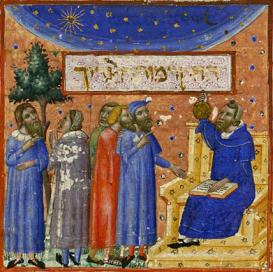The project explores the role of experience in Moses ben Joshua Narboni’s commentaries on two texts by Maimonides: Guide of the Perplexed and Treatise on Logical Terminology. I examine four aspects of experience and their employment in philosophical arguments: observation, diagrams, experiments, and “eyewitness”—a rhetorical means used by Narboni (1300–62) to convey to the reader that he himself witnessed a phenomenon. Furthermore, I discuss the role of experience in Narboni’s response to the paradox of rota aristotelis, which conveys the tension between knowledge grounded in observation and knowledge grounded in understanding.
Narboni’s employment of experience for philosophical purposes is examined through examples. These include the use of physiological facts to explain logical inferences as well as using descriptions of experiments, physical bodily experiences, and diagrams to support philosophical claims. I consider Narboni’s response to the paradox of Aristotle’s wheel, rota aristotelis, known in Narboni’s time as a paradox that clearly presents the tension between experience and understanding. Narboni does not disregard experience as merely an inferior type of knowledge, even though knowledge grounded in understanding is more valid than knowledge grounded in experience. Rather, he analyzes the ways in which experience can contribute to the advancement of our intellectual and even logical knowledge.

